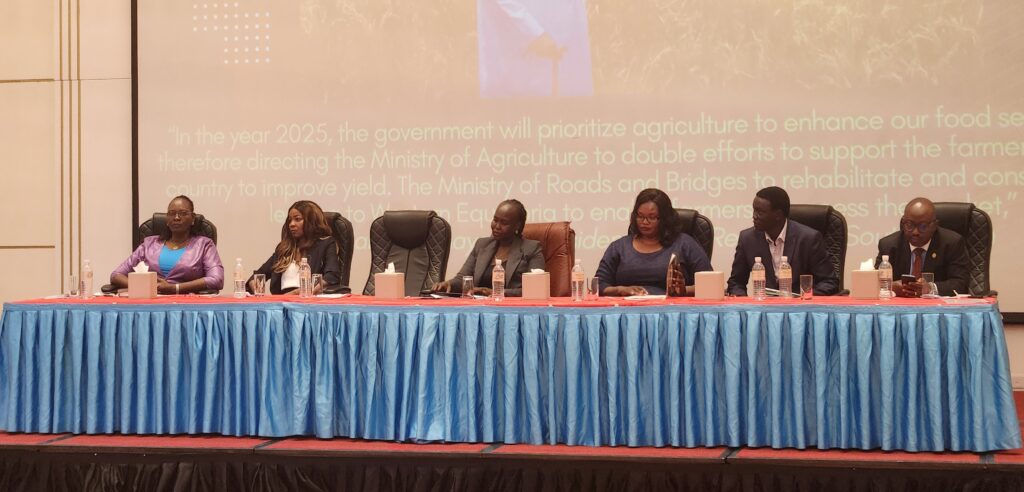South Sudan’s government on Tuesday launched the Agrofood Expo and Business Forum 2026, an initiative aimed at connecting local entrepreneurs with global opportunities to develop the nation’s largely untapped agricultural potential.
The expo, organized by the Ministry of Trade and Industry in collaboration with the ministries of Investment, and Livestock and Fisheries, is designed to foster networking for business owners, startups and investors in the agricultural sector. Organizers described it as a critical step toward reducing the country’s heavy reliance on imported food.
Christine Ijino, Director General for Trade Fairs, called the event a milestone. “This expo is a statement of confidence that South Sudan can harness its rich agricultural potential to build a stronger economy, create jobs and reduce poverty,” Ijino said at the launch event in Juba.
She praised the event’s organizer, Orient Group, for its “bold decision” to host the expo, which will feature national and international exhibitions, investment forums and agribusiness programs targeting youth and women.
Atong Kuol Manyang, the Minister of Trade and Industry, emphasized that agriculture is fundamental to peace and sustainable development. She lamented the nation’s dependence on imports despite possessing abundant land, water and labor.
“As South Sudan, we rely heavily on importation of almost everything, yet we have the land, water and people to produce for ourselves,” Manyang said. “Agriculture is not only an economic engine but also a security imperative that can restore peace, unity and stability in our country.”
The minister highlighted that foreign entities often dominate farming in the country’s most fertile areas, while many South Sudanese depend on imported goods. She urged a shift from subsistence to commercial farming to create jobs and strengthen food sovereignty.
“The Agrofood Expo is not just an exhibition. It is a national instrument for transformation,” Manyang said, adding that it would showcase technology and foster partnerships.
Lily Kafuki, Central Equatoria State Minister of Agriculture, Forestry and Environment, directly linked food production to national security.
“Where food is secure, insecurity declines. Families under pressure from hunger may resort to negative coping mechanisms that fuel crime, displacement and even conflict,” Kafuki said. She pledged that state authorities would work to improve local security and encourage youth and women to engage in modern farming.
Prosper Addo, a representative from the African Union, underscored the need for peace and infrastructure to unlock the sector’s potential. He noted the paradox of nearly 9.7 million people in South Sudan facing food insecurity despite the country’s vast natural resources.
“For any economy to succeed, security and peace are essential. People cannot go to the farm if they are afraid for their lives,” Addo said. He stressed the need for better roads and food preservation systems to connect farms to markets.
Addo also reminded the South Sudanese government of the African Union’s policy recommendation for member states to allocate 10% of their national budgets to agriculture, calling the expo a platform for meaningful economic transformation.




